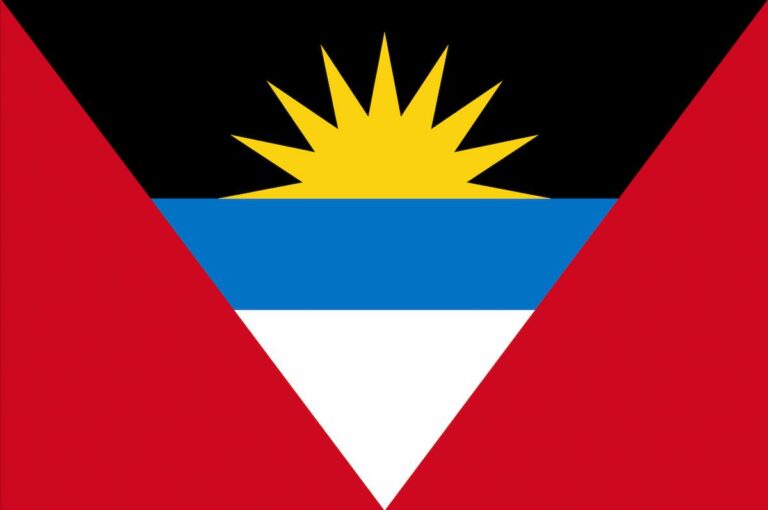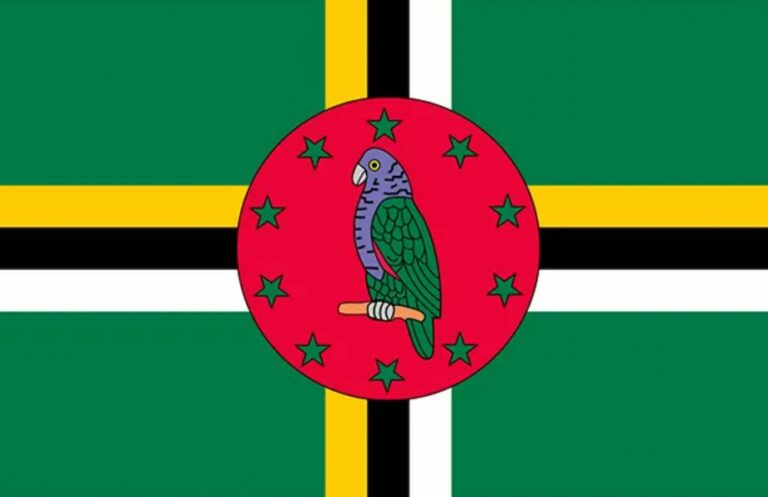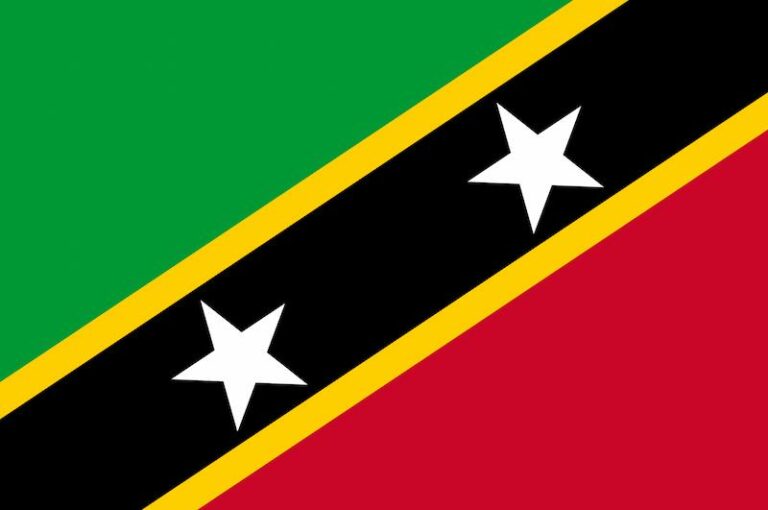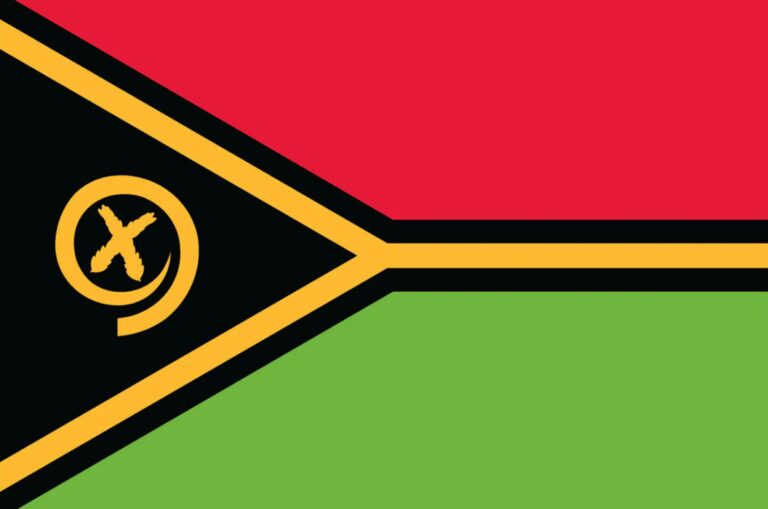A Guide To Citizenship By Investment
Citizenship by investment offers a solution for immigrant investors who want to expand their travel options and unlock more opportunities in their personal and professional life.
With the rise of globalisation, the ability to travel and communicate freely throughout the world is more important than ever. Many nations’ passport holders are free to travel from country to country, often without the need for a visa and with easy customs checks. However, for others this is not the case. While the world’s best citizenship programs unlock unrestricted travel to over 180 countries, for others this number can be less than 35.
Obtaining a second passport and acquiring citizenship through popular investment programs such as the Saint Kitts and Nevis and the Antigua and Barbuda citizenship programs can open up unrestricted travel – influencing where you can live, trade, work, invest and travel.
Citizenship by investment is on the rise globally for expats seeking to broaden their horizons.
What is
Citizenship By Investment
Citizenship by investment or CBI, is a popular citizenship program that enables individuals to obtain citizenship by investing in a foreign country. This type of immigrant investor program has gained popularity as more foreign investors seek to broaden their horizons, enjoy visa-free access to more countries, and enjoy many business and family-related rewards.
The process of obtaining a dual citizenship through an investment program involves making a significant investment in the host country’s economy. The investment can take the form of a sustainable growth fund, a government fee, an approved real estate project, or other investment programs that meet the host country’s requirements. The amount of investment required varies depending on the country and the type of citizenship program.
In return for the investment, the host country’s government will grant citizenship and a second passport to the individual and their family members. This type of economic citizenship program grants citizenship through a more straightforward and streamlined process than traditional immigration processes. The process can take between a few months to a year, depending on the country’s requirements and the type of investment program.
Why Choose Citizenship By Investment Now?
Some of the top benefits include:
Freedom to travel
Freedom to travel
One of the main benefits of a second citizenship programme is global mobility. Second citizenship can unlock visa-free and visa-on-arrival access to over 180 countries worldwide – allowing you to travel freely for meetings, expos, site visits and more. Many European programmes also allow you to live, work and travel freely throughout the entire EU.
Safety and security
Safety and security
The majority of countries offering citizenship-by-investment are among the safest in the world. If you are in danger of persecution or discrimination in your home country, second citizenship offers a way out for you and your family.
World-class education
World-class education
A second citizenship can grant you access to world-class schools and some of the finest universities and institutions. You will also qualify for domestic tuitions fees.
Tax efficiency
Tax efficiency
The majority of countries offering citizenship-by-investment programmes allows you to benefit from their attractive and low tax regimes. Therefore, you can ensure that both your personal income and business revenue are protected.
Quality of life
Quality of life
Many second citizenship programmes allow your spouse and any dependent children to live, study and work in your chosen country and beyond – potentially opening up some of the world’s best healthcare systems and educational institutions to your loved ones.
Business opportunities
Business opportunities
Many countries have rules in place regarding who can invest in their nation’s businesses, markets and real estate. As a second citizen, you are offered the same investment rights as a citizen from birth –opening up new business opportunities outside your country of origin.
Global Trend towards Citizenship by Investment
The trend towards citizenship by investment is growing globally. More and more wealthy individuals are recognizing it as an effective way to access previously unimagined opportunities. It’s not just a luxury reserved for the ultra-rich anymore, with cost-effective programs offering enticing benefits and returns for a surprisingly low investment amount.
The process of obtaining citizenship through investment can be quick, with some programs granting citizenship in as little as three months.
Who Does Second Citizenship Benefit The most
Second citizenship presents substantial advantages to various individuals with different objectives and needs, positioning them to utilize a wealth of diverse opportunities that are not available with single citizenship. Essentially, one’s lifestyle, professional pursuits, or long-term objectives will significantly define the benefits reaped from second citizenship.
Entrepreneurs
The second passport tends to significantly benefit entrepreneurs who have international business ambitions. For business proprietors seeking to minimize bureaucratic hurdles, lower taxes, or enhance the ease of business setup, citizenship by investment offers an enticing solution. For instance, engaging in the Turkish citizenship program allows investors to set up a business and hire 50 local workers to gain citizenship.
High Net Worth Individuals
Secondly, high net worth individuals (HNWIs) stand to gain immensely from second citizenship, primarily through citizenship by investment programs. These individuals can acquire citizenship by making sizable donations or investing in pre-approved real estate, which often saves them significantly in tax payments. For instance, a $100,000 donation under some Caribbean programs could potentially save an investor millions in taxes in their home country.
Frequent Travelers
Another significant beneficiary group is individuals who highly value global mobility. A second passport significantly enhances travel freedom, allowing passport holders to access numerous countries visa-free, including countries in the Schengen Area and the UK. For example, Maltese citizens can move freely within the EU, but also commonly use their second passports to gain long-term visas to the USA.
Families
Lastly, professionals or families seeking better living conditions can also benefit significantly from second citizenship. Acquiring second citizenship can open doors to a wealth of opportunities for families, particularly in healthcare and education.
On top of healthcare and education benefits, second citizenship also brings families cultural exposure and language learning opportunities, thus furnishing children with invaluable life skills and career prospects in a globally connected world.
In conclusion, the appeal of second citizenship varies across different individuals, but the common denominator for most is the quest for enhanced business opportunities, greater travel freedom, tax optimization, and overall improved quality of life.
Which Countries Offer Citizenship By Investment Programs?
A range of countries worldwide extend their arms to investors via CBI schemes. Among the most recognized are Antigua and Barbuda, Dominica, Grenada, St Kitts and Nevis, and St Lucia. In most cases, residing in the country beforehand or proficiency in the local language is optional.
Here at Next Generation Equity, we offer these CBI Programs:
Antigua and Barbuda
The main investment options offered under Antigua & Barbuda’s CIP are investments made to one of four government-approved areas:
- The University of West Indies Fund
- Business Investment
- Real Estate Investment
- The National Development Fund (NDF)

Dominica
The Dominica Citizenship by Investment Program (CIP) offers potential investors two main routes to obtain citizenship in the beautiful Caribbean island nation.
Real Estate Investment
- The minimum investment required for this option is USD 200,000, and the property must be held for a minimum of three years
Economic Diversification Fund (EDF)
- This non-refundable donation supports the development of key sectors in the country, including education, healthcare and infrastructure. The minimum investment for a single applicant is USD 100,000.

Grenada
The Grenada CBI offers potential foreign investors with two primary routes to obtain citizenship.
Government-Approved Real Estate Investment
- Investors must make a minimum investment of USD 220,000 and hold the property for at least five years.
Grenada’s National Transformation Fund
- The minimum investment for a single applicant or primary applicant is USD 150,000. For families, the minimum investment is USD 200,000, which includes the main applicant, a spouse, and up to two dependents.

Malta
Obtaining Malta citizenship through investment, commonly referred to as the Maltese Exceptional Investor Naturalisation (MEIN), involves meeting specific financial and residency requirements.
Real Estate Investment
- Applicants must purchase a residential property in Malta with a minimum value of €700,000 or rent a property with a minimum annual rent of €16,000
Financial Contribution
- Depending on the residency period, applicants need to pay a non-refundable contribution to the National Development and Social Fund. For those applying after 36 months of residency, a €650,000 payment is required for the main applicant plus €50,000 for each additional dependent. In case of applying after 12 months of residency, the contribution increases to €750,000 for the main applicant and €50,000 for each dependent.
Donation
A mandatory donation of €10,000 to a registered NGO or society within Malta is requisite.

Saint Kitts And Nevis
Applicants have several investment options to choose from when seeking Saint Kitts and Nevis citizenship:
Real Estate Investment
- Purchasing a real estate project from an approved development or a private home, with a minimum value of USD$400,000 qualifies for the program. The acquired or property investment must be held for at least seven years before it can be resold.
Sustainable Growth Fund (SGF):
- Applicants must contribute various amounts depending on their family size, ranging from USD$250,000 to USD$350,000 with additional fees for extra dependents.

Saint Lucia
To qualify for the Saint Lucia citizenship by investment program, applicants must be at least 18 years of age, meet application requirements, and choose from one of the following four investment options:
Real Estate Investment
- Applicants must purchase a property with a minimum value of USD$200,000 from an authorized development venture and maintain possession for a minimum of five years.
National Economic Fund (NEF) Donation
Make a non-refundable contribution to the Saint Lucia National Economic Fund.
The amounts required are as follows:
– USD$100,000 for a single applicant
– USD$140,000 for a main applicant and spouse
– USD$150,000 for a main applicant, spouse, and up to two qualifying dependents
- Applicants must contribute a minimum of USD$3.5 million to a sanctioned enterprise initiative and establish a minimum of three long-term employment positions. As an alternative, applicants can contribute jointly a total of USD$6 million (with each individual investing at least USD$1 million) and generate no less than six permanent job opportunities.
Government Bond Investment
- Invest in non-interest-bearing government bonds with a minimum value of USD$300,000 (plus an administrative fee of USD$50,000) and hold them for at least five years.

Turkey
To become eligible for the Turkish CBI Program, the main applicant must fulfill one or more of the following minimum investment requirements:
- Acquire real estate property worth at least USD$400,000.
- Invest a minimum of USD$500,000 as fixed capital contribution.
- Deposit at least USD$500,000 or its equivalent in foreign currency or Turkish lira into a Turkish bank account.
- Commit to a minimum of USD$500,000 or its equivalent in foreign currency or Turkish lira into government bonds.
- Invest at least USD$500,000 or its equivalent in foreign currency or Turkish lira into a real estate investment fund or venture capital investment fund.
- Allocate at least USD$500,000 or its equivalent in foreign currency or Turkish lira into a private pension system with a minimum holding period of three years.
- Create employment opportunities for at least 50 people, as certified by the Ministry of Family, Labour, and Social Services.

Vanuatu
The minimum investment and options vary depending on the number of applicants involved.
Applicants must show proof of funds not less than USD 250,000 to ascertain their ability to fulfill the financial requirements of the program.
Applicant are required to make a non-refundable contribution to Vanuatu’s local development fund.
– Single applicant: Donation of USD130,000 plus due diligence fees.
– Couple application: Donation of USD150,000 plus due diligence fees.
– Family of four: Donation of USD180,000 plus due diligence fees.

Choosing A Country For Second Citizenship
When considering a second citizenship through an investment program, it’s crucial to choose a country that aligns with your goals and aspirations. Whether you’re aiming to gain visa-free entry to specific areas, enjoy the benefits of business ownership in the chosen country, or capitalize on more favorable tax conditions, each citizenship by investment program offers its unique set of advantages.
Prioritizing Movability: If your primary goal is to travel freely across the UK and Schengen Area without the need for visas, Caribbean countries may be an ideal fit for you. Through their citizenship by investment programs, countries like Antigua and Dominica offer easy access to these geographical zones.
European Goals: For those who dream of living in Europe or gaining enhanced access across all EU member states, consider Malta’s tough but rewarding naturalization for exceptional services program. It comes with more requirements but opens up a world of benefits as an EU citizen.
Fast Tracking Passport Acquisition: If time is at a premium for you, obtaining Vanuatu citizenship could be your best decision as it boasts one of the quickest processing speeds among such programs.
Business Endeavors in The US: Aiming to expand your entrepreneurial horizons? Citizenship from Grenada, Turkey, or Montenegro can pave the way for running businesses in the United States.
In conclusion, choosing which country to acquire second citizenship from heavily depends on what specifically you hope to get out of this endeavor. Consulting experts such as Immigrant Invest can significantly help align these factors optimally according to pertinent information about family composition (if applicable), budget limitations, and the desired timeline for securing a new passport.
Investment Options for Citizenship By Investment Programs
In order to secure citizenship by investment, interested individuals need to make substantial economic contributions, which are then directed towards various sectors such as real estate, local businesses, and government bonds crucial in boosting the country’s economy. The following are key investment options that provide a path to acquiring citizenship:
1. Charitable Contributions
One of the most straightforward ways to obtain citizenship is through making charitable donations. This option is often considered cost-effective since there’s no requirement of managing assets thereafter. However, it’s worth noting that these financial contributions aren’t refundable.
2. Real Estate Investments
The majority of countries offer citizenship in return for an investment in their real estate sector. While this might be a lucrative option, potential investors need to ensure they’re investing in state-approved properties which tend not only be overpriced but can often involve additional government fees.
3. Hybrid Investments
Certain countries have adopted a more complex approach commonly referred to as the hybrid model where individuals are required make multiple investments within various sectors of their economy as a prerequisite for securing citizenship.
4. Banks, Bonds and Businesses Investments
A new wave of options entails depositing amounts at specified banks for certain periods or buying non-interest bearing government bonds subject holdings conditions before becoming eligible for country’s passport applications.
5. Investment Funds or Securities Purchase
Certain jurisdictions allow would-be investors buy securities or units within designated funds thus creating an avenue towards attaining nationalization rights.
6. Business Setup and Job Creation
This method qualifies you after you set up business operations within the foreign nation generating local employment opportunities consequently contributing significantly towards overall economic growth.
In pursuing a second citizenship, personal preferences and goals differ from one investor to another. A range of options exist,from enhancing travel capabilities, establishing residence in a European country or rapidly acquiring a passport through investments in countries like Vanuatu and Grenada. It is important for each potential investor to thoroughly analyze their personal needs alongside their investment ambitions.
Agencies like Next Generation Equity function as licensed agents who provide guidance through the selection criteria of various programs tailored towards an investor’s individual needs. The ultimate objective should be to obtain a passport that caters toward your needs as well as your family’s requirements, or alternatively apply for long term residency via investments where applicable.
Processing Times For Citizenship By Investment
The processing time for gaining your Citizenship by Investment will vary depending on the country you have applied for. Each country has its own unique requirements and procedures when vetting and approving citizenship for investors. Below are the average processing times for the countries that we offer Citizenship by Investment Programs for:
- Vanuatu: 1 month
- Saint Kitts, Dominica, Antigua and Barbuda, Saint Lucia, and Turkey: 4 months
- Grenada: 4-6 months
- Montenegro: 8 months
- Malta: 12 months
Step by Step: Citizenship By Investment Application Process
- Choose the country you wish to gain citizenship in.
- Sign the necessary agreement of terms for Next Generation Equity to handle the application process.
- Gather all necessary documents including marriage and birth certificates, financial proof, health records, and a clean criminal record.
- Notarize documents as needed.
- Pay the processing and application fees.
- Submit your application, fees, and proof of investment.
- Visit the country to receive your passport or a consulate in your home country (if possible).
Benefits of Obtaining A Second Citizenship For Expats
Citizenship programs offer numerous benefits for individuals and their families, including:
1. Streamlined Process
Obtaining citizenship by investment offers a more streamlined process than traditional immigration processes. This type of economic citizenship program offers a quicker and more straightforward path to citizenship, with fewer requirements and government fees.
2. Visa-Free Travel
Citizenship programs provide an additional advantage of visa-free travel to many countries, particularly the Schengen and EU countries. This expanded access to visa-free travel can be particularly beneficial for individuals seeking to establish a global presence or explore new business opportunities abroad. Furthermore, many individuals seek to gain citizenship by investment to allow their children to attend universities in these Western countries. When obtaining citizenship through investment, individuals and their families can travel to at least 110 countries without the need for additional visas or permits.
3. Family Security
Citizenship by investment offers family security by providing the right to live, work, and study in the host country. This type of economic citizenship program also grants access to citizenship-based benefits and protections. Certain citizenship by investment programs even offer the added benefit of allowing you to sponsor your wife and children for dual citizenship. This means that not only will you obtain citizenship for life, but your immediate family members will also have the opportunity to become citizens of the country where you have invested.
Additionally, these programs typically do not require the applicant to renounce their original citizenship, allowing them to retain their current nationality. Select programs also allow the applicant to reside in their home country as opposed to the host country to gain citizenship, making it an attractive option for those who wish to obtain a second citizenship without physically relocating.
This flexibility in terms of citizenship requirements can make citizenship by investment programs a popular option for those seeking to expand their global mobility and gain access to new business and investment opportunities.
4. Approved Real Estate Investment
Many citizenship programs offer investment in approved real estate projects that can provide a stable investment opportunity. This type of investment program offers a tangible asset and can provide long-term financial benefits and security.
Benefits Of Citizenship By Investment Programs For The Host Nations
Countries typically roll out citizenship by investment programs to attract significant foreign direct investment. Funds garnered can then help invest in local development, business growth, and job creation. For instance, the Sugar Industry Diversification Foundation in Saint. Kitts and Nevis, funded partly by CBI applicants, has invested over US$55 million into local infrastructure advancements.
Moreover, these CBI programs naturally attract global talent and expertise, further driving domestic economic prosperity. Hosting nations also cherish the increased capital and wealth flow across borders, bolstering social programs and ensuring steady economic development.
The Difference Between Residency And Citizenship
Defining the difference between residency and citizenship can be confusing for some. Both ‘resident’ and ‘citizen’ are terms used to describe a person’s status in a country. However, they represent distinct concepts. Being a resident implies you can legally live and perhaps work in that country for a finite period while holding a passport from your home country. However, achieving citizenship provides extra privileges, like the right to vote and lifelong rights to reside and earn a living in a country.
Different Types Of Citizenship For Foreigners
Citizenship, as an idea, has morphed over centuries. The core idea persists – it’s a legal standing a person holds within a state. This state, however, isn’t necessarily their birthplace. Several common sorts of citizenship exist, namely jus sanguinis or “right of blood”, jus soli (citizenship achieved by birth location), jus matrimonii (citizenship via marriage), and naturalization.
Jus Sanguinis, Latin for “right of blood,” is one prevalent path to citizenship. As an example, if your parent or grandparent is already a citizen of a specific nation other than where you were born, you might be eligible for this type of citizenship. Think of countries like France, Greece, Romania, and Turkey, among others.
The jurisdiction you are born in defines jus soli, meaning “the right of soil.” Despite that, certain legal restrictions may apply in some jurisdictions. Nations, including Australia and New Zealand, follow this model. Other nations such as Canada, Greece, and Israel apply a combination of jus sanguinis and jus soli providing dual citizenship.
“Citizenship by marriage” or jus matrimonii has become increasingly accepted post World War II, where citizenship becomes a possibility after a certain period of wedlock.
Naturalization occurs when an individual has been in the country through proper channels for an extended amount of time, such as political asylum, which in turn leads to citizenship.
Last but not least, Citizenship by Investment (CBI) allows investors another possible way towards citizenship. Over a dozen of these programs currently exist, with the first launched by St Kitts & Nevis back in 1984.
Citizenship vs Residency Benefits Comparison
Benefits Citizens and Residents Both Enjoy:
- Social Benefits Access: Those with citizenship or permanent residency avail themselves of numerous social benefits, which include access to extensive healthcare provisions.
- Mobility Within the Nation: Citizens or permanent residency cardholders have the liberty to reside, pursue education, work, or manage businesses anywhere in the residing nation.
- Global Mobility: Citizens and residents of many countries frequently have the advantage of visiting other countries either visa-free or with visa-on-arrival options. This perk is especially valuable for those eager to visit areas like the Schengen Zone.
Benefits Only Citizens Enjoy:
- The right to vote
- Access to consulates overseas
- Spending as much time in or outside the country as they please
- Security in their status and rights throughout their lifespan
- Ability to pass citizenship status down to children and grandchildren
Drawbacks of Only Having Residency:
- Must renew residence visas
- Must preserve good health and a clean criminal record to retain residency
How To Apply For Citizenship By Investment With NGE
At Next Generation Equity (NGE), we operate CBI schemes for several countries, including Antigua and Barbuda, Dominica, Grenada, Malta, Montenegro, Saint Kitts and Nevis, Saint Lucia, Turkey, and Vanuatu. We lay out all the requirements for each program on our website. While exact procedures will vary from country to country, the fundamentals are consistent.
Applicants need first to have a clean criminal record, demonstrate the legal source of the proposed investment funds, decide how many family members will be participating, and finally commit to investing in an approved option. Be it real estate, government bonds or a national economic fund.
Citizenship By Investment FAQ's
Which country gives the fastest citizenship by investment?
Various countries offer citizenship through investment programs, and the timeframes for acquiring citizenship can differ. Currently, one of the fastest options is the Caribbean island nation of St. Kitts and Nevis. With their foreign direct investment program, applicants can potentially be granted citizenship within just two to three months.
How many countries have citizenship by investment?
There is no fixed number as these programs evolve over time, but numerous countries offer citizenship through investment programs worldwide. These opportunities are more prevalent in regions such as Europe and the Caribbean but involve significant investments in the form of real estate or other projects promoting economic growth.
What is the cheapest Caribbean island to get citizenship?
Several Caribbean islands provide cost-effective options for obtaining citizenship through their respective investment programs. Among them, Dominica has been highlighted for offering one of the most affordable routes to acquire a second passport and access visa-free travel around most of Europe and North America while making valuable contributions towards local economies.
What is investor citizenship?
Investor Citizenship refers to acquiring dual nationality (citizenship) from another country by actively participating in its economy via foreign direct investments that meet specific requirements established by government regulations and legislation. In exchange for financial contributions or property purchase commitments within target sectors or communities, nations with active investor-based immigration policies grant foreigners full legal rights as citizens under their jurisdiction
SIGN UP FOR A FREE CONSULTATION
"*" indicates required fields